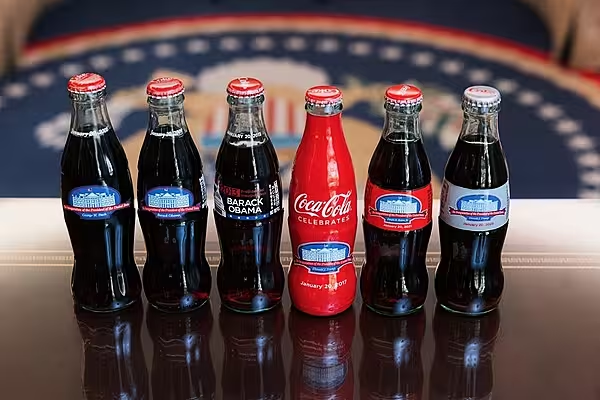Canada and Mexico are holding firm in their resistance to addressing America’s most contentious proposed changes to Nafta in the latest talks, with the parties making some slow progress on areas of greater consensus.
The U.S. is frustrated with what it perceives to be the reluctance of Canada and Mexico to present counter-proposals to U.S. positions on key issues such as regional content requirements and dispute settlement, said a person close to the negotiations. American officials are especially discouraged by Canada for publicly stating that the U.S. proposals are unacceptable, without presenting alternatives at the negotiating table, said the person, who spoke on condition of anonymity.
Next Round
The fifth round of talks, which began in Mexico City on Nov. 15 and wrap up on Tuesday, is the first held without the top trade chiefs from the three countries. That’s allowed the respective teams to work on the challenge of updating the more mundane facets of the nearly 2,000-page North American Free Trade Agreement, which started in 1994 and is undergoing a major overhaul.
Progress was slow over the weekend. While hundreds of hours of talks are unfolding on issues ranging from car manufacturing to telecommunications, negotiators have punted decisions on the most divisive issues to future rounds. The three countries have extended the deadline for the talks to March, when they could be complicated by elections in Mexico and U.S. midterms.
Mexico and Canada are holding out hope the U.S. will bow to domestic pressure from lawmakers and industry groups to soften its demands -- and Canada is warning there won’t be a deal if it doesn’t.
Since talks left off in October, U.S. companies and business groups, led by the U.S. Chamber of Commerce, have mounted a campaign to mobilize Congress and convince the White House to back down from proposals they see as damaging to corporate interests. The Chamber on Friday warned that an American pullout would hit hardest some of the swing states that President Donald Trump took on his road to power.
Key Demands
The fate of the talks may hinge on that lobbying effort and whether the U.S. relaxes key demands. With Washington lawmakers focused on tax reform, that’s a question expected to linger into 2018. Two Canadian government officials, speaking on the condition of anonymity, said this weekend there’s no chance of any deal without the U.S. significantly altering its most contentious proposals.
That message was echoed by a prominent Canadian union leader. “As long as the U.S. has those proposals on the table, nothing is going anywhere” on less controversial issues, Jerry Dias, head of Canada’s largest private-sector union, said Sunday in Mexico City. “These negotiations are going nowhere fast.”
The fifth round of talks has produced no substantial breakthrough so far and has largely avoided the most divisive U.S. proposals on dairy, automotive content, dispute panels, government procurement, and a sunset clause.
Weekend Talks
Talks over the weekend focused on a wide range of subjects, and officials said they made progress in less-contentious areas. Negotiators are scheduled to spend much of their time on auto rules of origin, which govern how much of a vehicle must be produced in North America to trade without tariffs, though discussions on that have centered on mundane details such as paperwork requirements.
“It’s very important to have advances, not just on the most controversial topics, to be able to continue with a pace of advance and so that the cost of leaving for the U.S. keeps rising,” Moises Kalach, the head of trade for Mexican national business chamber CCE, said on Friday in comments aired on El Financiero Bloomberg TV.
Sensing danger, the auto industry has stepped up its lobbying to preserve Nafta. A coalition of industry associations called Driving American Jobs traveled to Mexico City to make its case.
News by Bloomberg, edited by ESM. Click subscribe to sign up to ESM: The European Supermarket Magazine.














